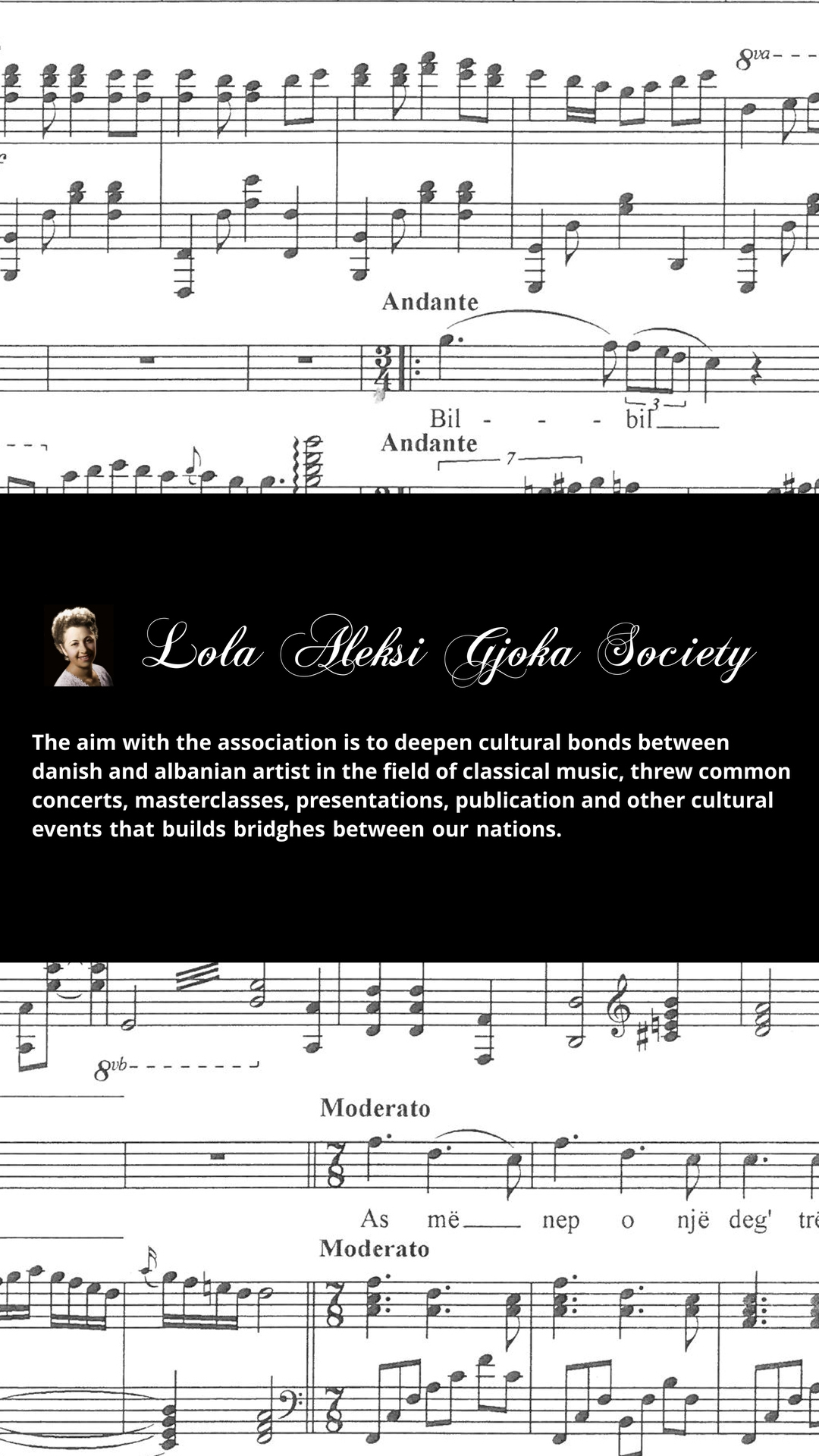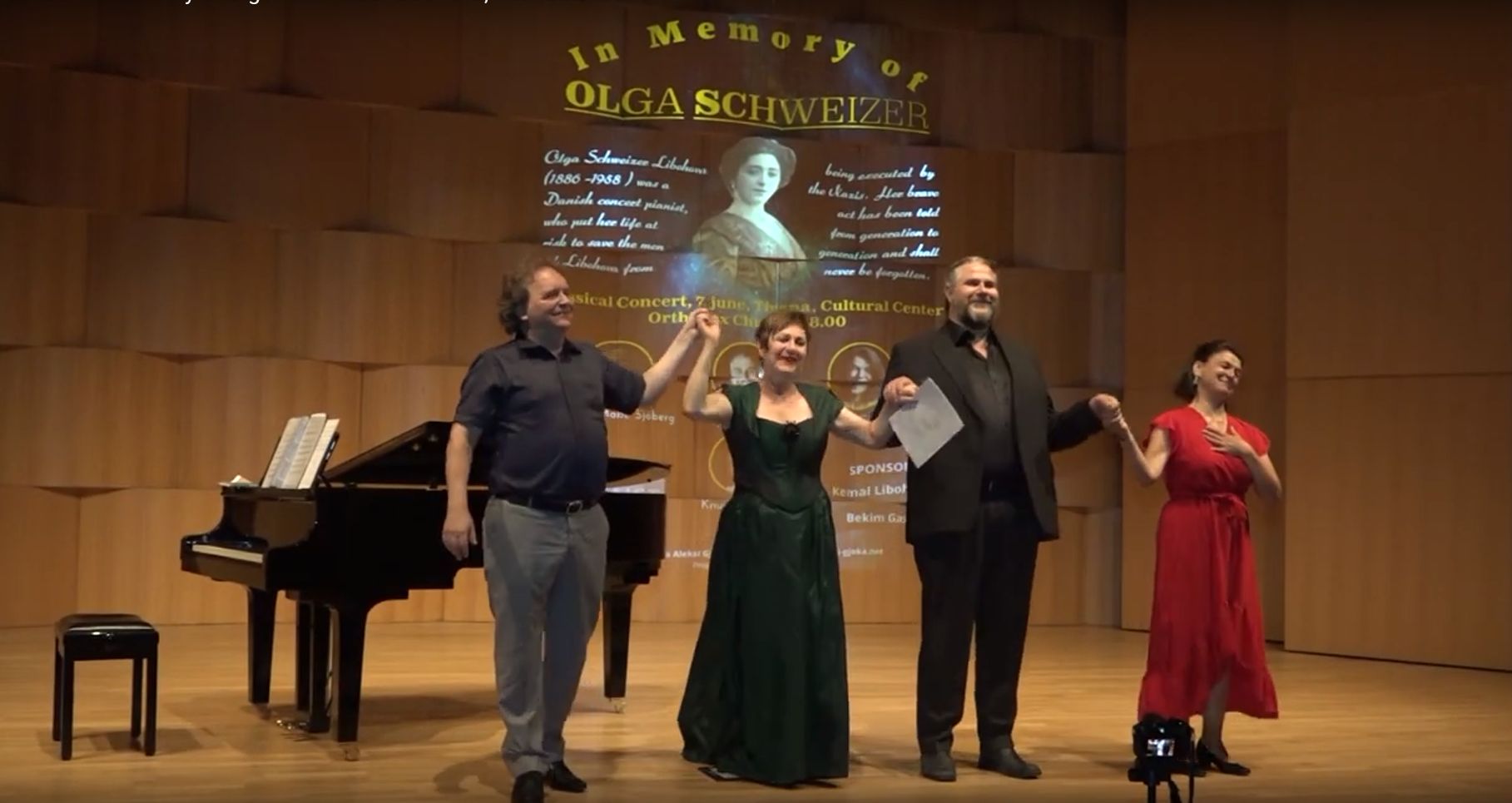EVENTS
KLASSISKE TONER FOR ALBANIENS FRIHED
Danske operastjerner og albanske musikere forener Albanien og Danmark med musikaske perler fra den danske og albanske sangskat. Til aere for Albaniens National- og Befrielsesdag.

Concert in Memory of Olga Schweizer Libohova, Tirana 7th June
You can find the story about Olga Schweizer under News.
When you start the video, a connection to YouTube is established. You can view the data protection regulations applicable to YouTube HERE. We upload the videos via youtube-nocookie.com.
NEWS
Press release: Article about Olga Schweitzer from Libohova.
In honor of Olga Schweitzer: The Danish concert pianist who became a heroine in Albania
By Feride Istogu Gillesberg and Kemal Libohova
Olga Schweitzer (b. January 4, 1886) is best known in the small town of Libohova, south of Gijokaster in Albania, as "Madame Olga" or "Zonja Olga" in Albanian. Olga Schweitzer was a concert pianist, and after finishing her education in Paris in the early 1900s, she gave concerts in various European capitals, including Istanbul. In Istanbul, she met Albanian intellectual Mufid Bey Libohova, who was studying at the city's Military Academy. Olga Schweitzer and Mufid Bey Libohova fell in love at first sight. They became engaged and married and settled in Albania in 1909, where Bey Libohova played an important role in the creation of the nation. When Albania finally gained its independence in 1912 after 500 years of occupation by the Ottoman Empire, Mufid Libohova became the country's first Minister of the Interior, later Minister of Finance and founder of the national bank and the nation's currency. Since then, as foreign minister, he was also considered an important figure in the nation's early history. Olga Schweitzer's descendants tell stories about how she loved Albania and its people. This was the reason she stayed in Albania after her husband's death in 1927. She cared for the people of Libohova with an open heart and with devotion and care. Perhaps it was the character traits that she brought with her from her Danish upbringing. The people of Libohova loved her for her kindness, and she was referred to by the honorific name "Madame Olga". During World War II, the German army came to Libohova to carry out an act of revenge against the partisans in the area. The Nazis lined up all the men in Libohova and wanted to liquidate them. But Madame Olga, who had seen what was happening, came out of her house and walked towards the German officer. She stopped him at the moment he was about to order the soldiers to fire. In fluent German, Olga asked the officer what they were doing. The officer was confused, he couldn't believe what he was hearing - a woman in a far-out place, speaking fluent German! He asks who she is. She evades him and says: "I am a citizen like the ones you have lined up. I am a citizen who lives with everyday worries, sorrows and joys just like everyone here, neither better nor worse than them. I enjoy great respect from the citizens here and ask them to let them go." The German officer gets confused, and Olga keeps saying that these men are innocent and that the hundred men are part of a hundred families, all of whom she knows. There are no partisans among them. But the officer replies that he has orders to shoot them. Madame Olga assures him again that there are no partisans and ends by saying: "I am like them, so you must treat me like them". Then she goes and stands in the middle of the line and says: "If you think these people are guilty, which I guarantee you they are not, then shoot me first"! There is total silence for a moment. "Who are you?", the officer wants to know. "That's not important," is her reply. The officer continues to ask, and finally Madame Olga tells him that she is the wife of Mufid Bey Libohova. This prompts the officer to call the German command center in Tirana. When the commander-in-chief hears Mufid Bey Libohova's name, he gives the order to let them all go free. Olga's bravery has been told by all the descendants of those who were rescued that day and survived the war. Madame Olga lives on in the hearts of the people of Libohova to this day. Her heroism only became known outside of Libohova after the fall of communism in 1991. But the knowledge of Olga Schweitzer must also be brought beyond the borders of Albania - preferably also to her home country, Denmark.
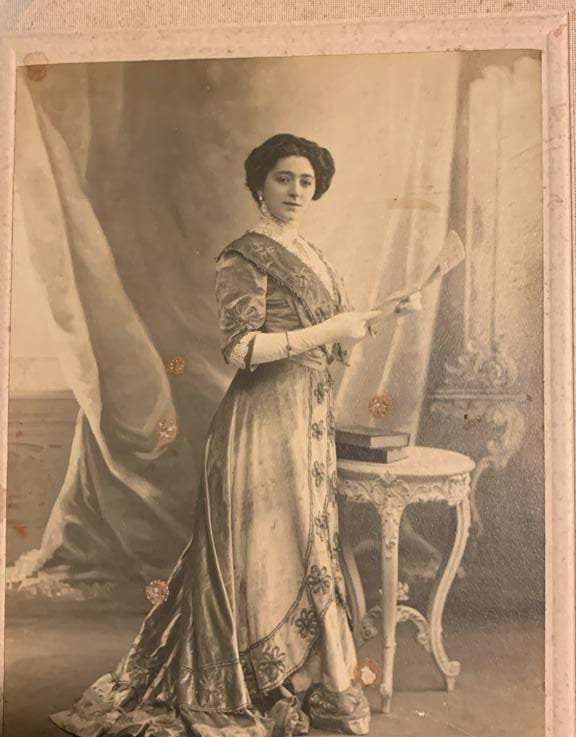
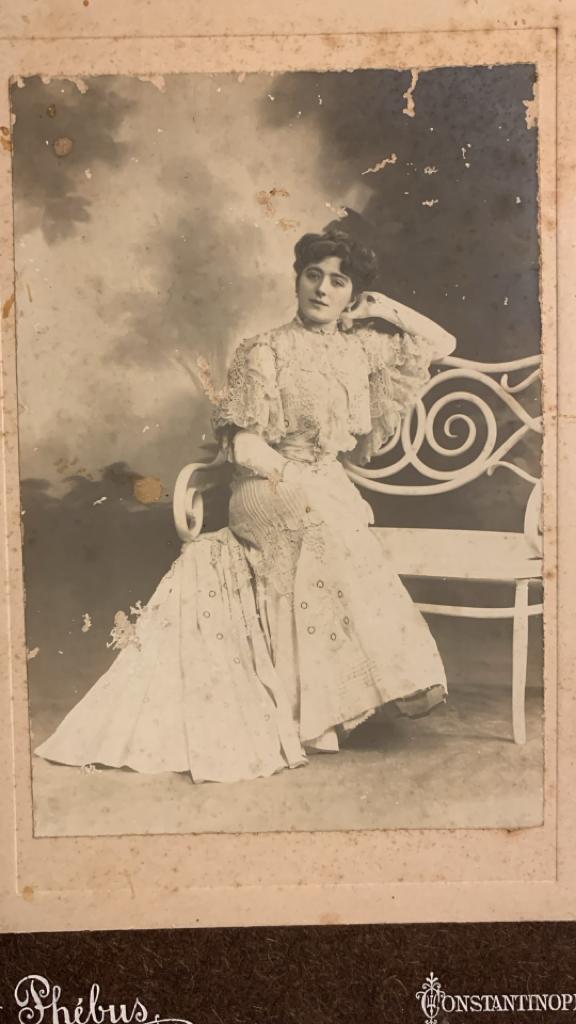
Koncerts in Memory of Olga Schweizer Libohova
The world-famous Danish tenor Stig Fogh Andersen and soprano Gitta-Maria Sjöbjerg together with the Danish tenor John Olsen, pianist Knud Rasmussen and Feride I. Gillesberg hold classical concerts in memory of Olga Schweizer in Libohova and Tirana with a Danish-Albanian program.
A larger delegation of Danish citizens, together with the grandson of Olga Schweizer, Kemal Libohova, and members of the Danish Albanian Friendship organisation came from Denmark to Albania to celebrate Olga. On 3 th of june, the day of the first concert in memory of Olger Schweizer Libohova, the city square of Libohova was filled with the people of Libohova, a larger Danish delegation, the mayor of Libohova, the Danish consul in Albania, representatives of the Albanian intelligentsia from Tirana, even Albanian families living in Greece, which had heard about this celebration, travelled there to take part. They had family members who were rescued by the courageous act of Olga. Lihovhoa was transformed into a historic scene where a hero was celebrated.
The celebration began by unveiling a beautiful plaque on a flat stone, with the portrait of Olga Schweizer, made by the Albanian-Danish sculptor Bajramali Idrizi, which was attached at the entrance to the house of the Libohova family. The ceremony was followed by speeches and a children’s dancing group. The high point came with the classical concert in memory of Olga Schweizer by Danish opera singers of honour and world know tenor Stig Fogh Andersen and Gitta-Maria Sjöbjerg and pianist Knud Rasmussen, sopran Feride Istogu Gillesberg, albanian soprano from Gjirokaster and a well-known Albanian artist of folkloric songs Rolandi Cenko.The program consisted not only of beautiful Danish songs by Peter Heise, Carl Nielsen and Matti Borg, Albanian songs, but also Albanian songs by Lola Gjoka, sung by the artists of honour from Denmark. All the attendees, Danes as well as Albanians, were extremely moved by the beauty of the classical concert in honour of Olga Scheizer, especially the singing of Danish tenor Stig Fogh Andersen and soprano Gitta-Maria Sjöbjerg. Kemal Libohova, the grandchild of Olga Libohova, who was a very important driver behind this event, was very happy that his grandmother finally got the celebration she deserved.
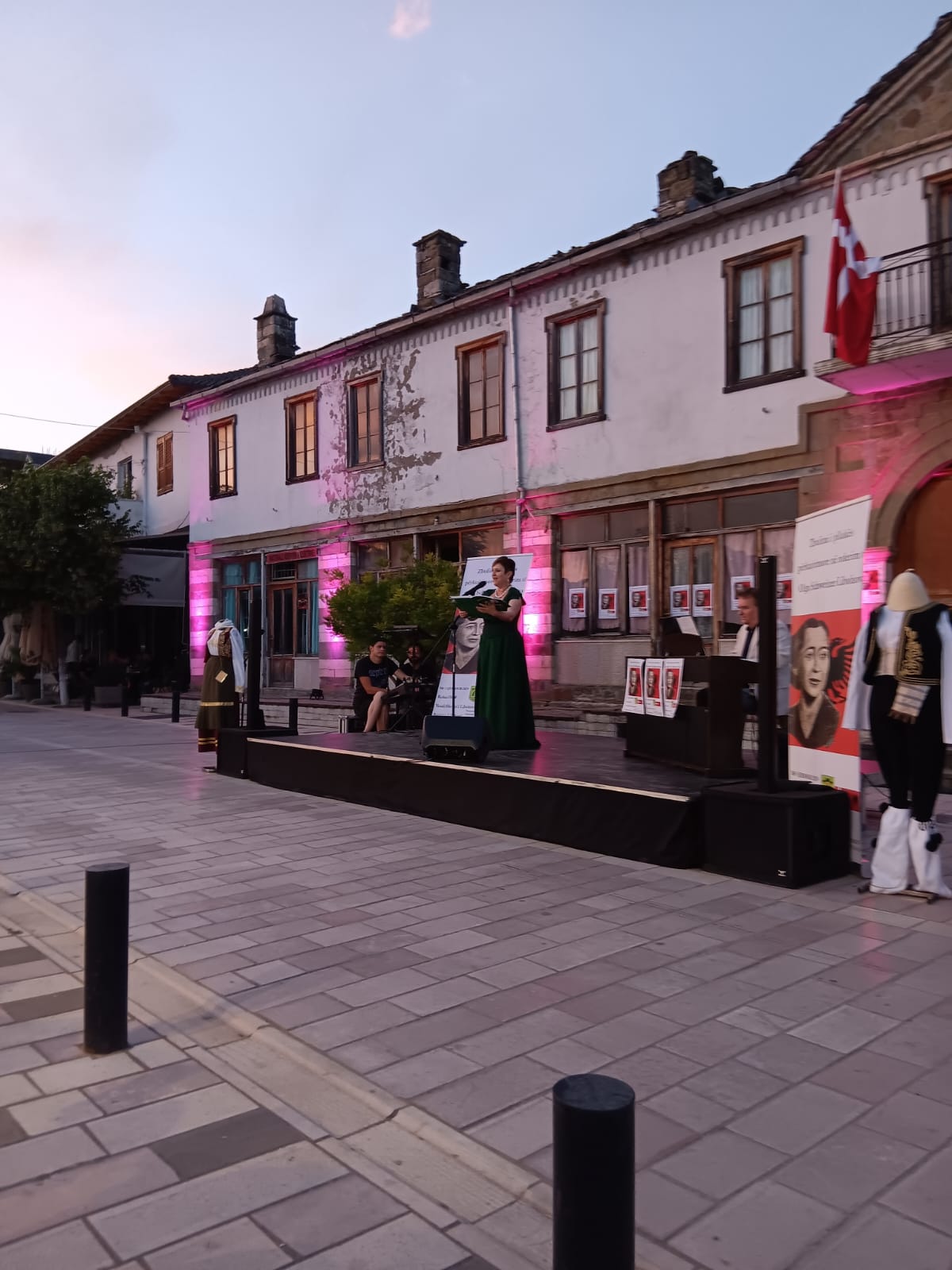
Concert for diplomats at the Art Gallery Kalo
A small concert in memory of Olga Schweizer was held for diplomats at the Art Gallery Kalo on June 5, Denmark's Constitution Day, organised by the Danish consul in Albania. The artist of honour was tenor John Olsen and Feride Istogu Gillesberg and the Albanian pianist Merita Rexha Tershana.
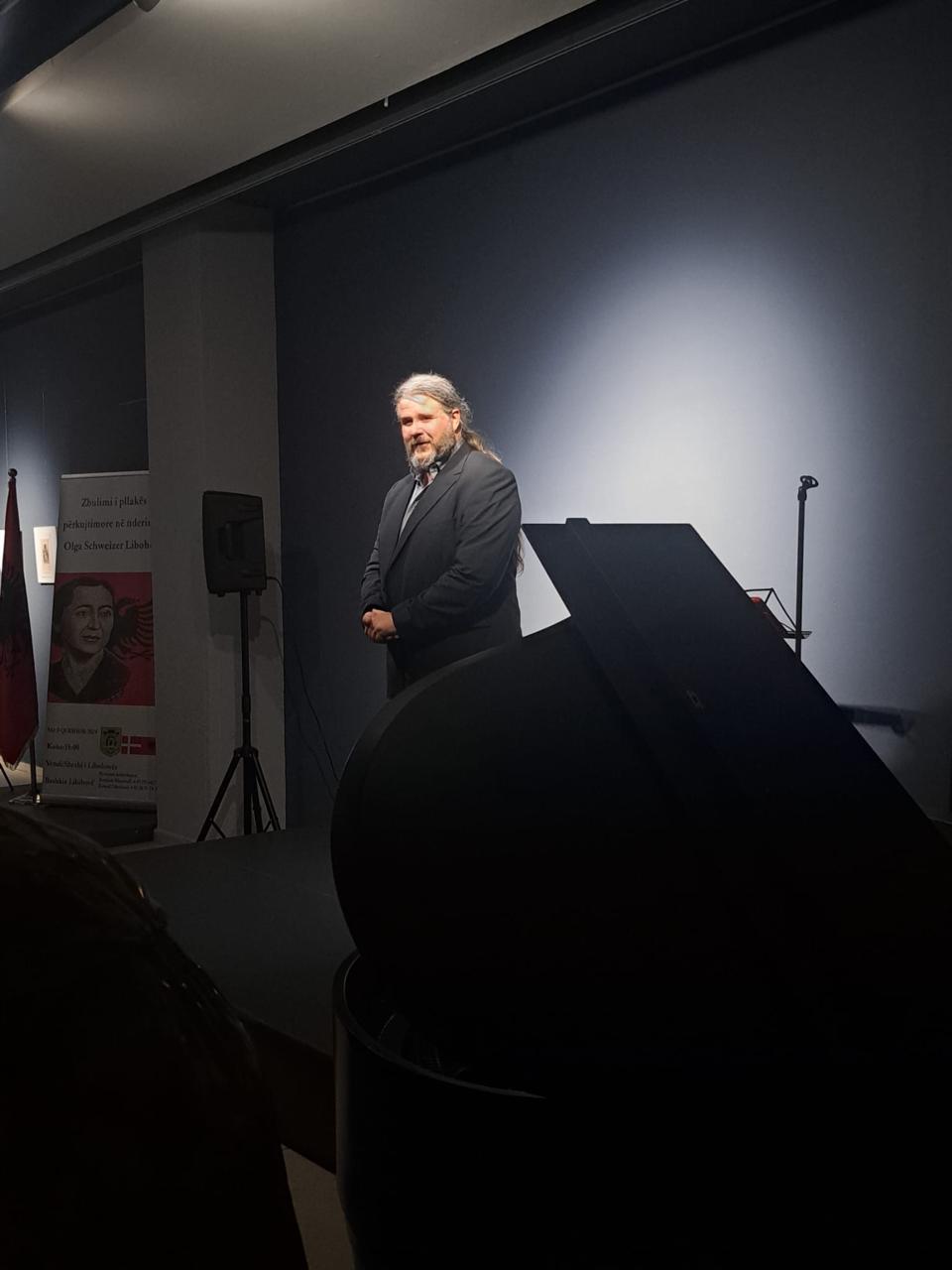
Concert Cultural Center of the Orthodox Church in Tirana
Our second concert was held in the beautiful concert hall of the Cultural Center of the Orthodox Church in Tirana, which was attended by music lovers, diplomats, Albanian intelligentsia, journalists and the Danish delegation, who came to Albanian in honour of Olga Schweizer.Bilder vom KoncertOur concerts in memory of Olga Schweizer created a huge interest in Albanian. Two longer interviews about Olga Schweizer were broadcast on Albania's national TV, between the concerts in Libohova and Tirana, on the program “Ura,” (Bridge), which is well known among Albanians and to the whole Albanian diaspora around the world. The first interview was with Albanian-Danish freelance journalists Ibrahim Xhemajli and Ixhet Lutfiu, who had documented the story of Olga Schweizer three years ago. The second interview was with Feride I. Gillesberg as organiser of the two classical concerts in memory of Olga Schweizer. The knowledge of Olga Schweizer will hopefully reach the rest of the world and be an inspiration for many.bild von mir im Studio Masterclass with Gitta-Maria Sjöberg in Korca, Albania
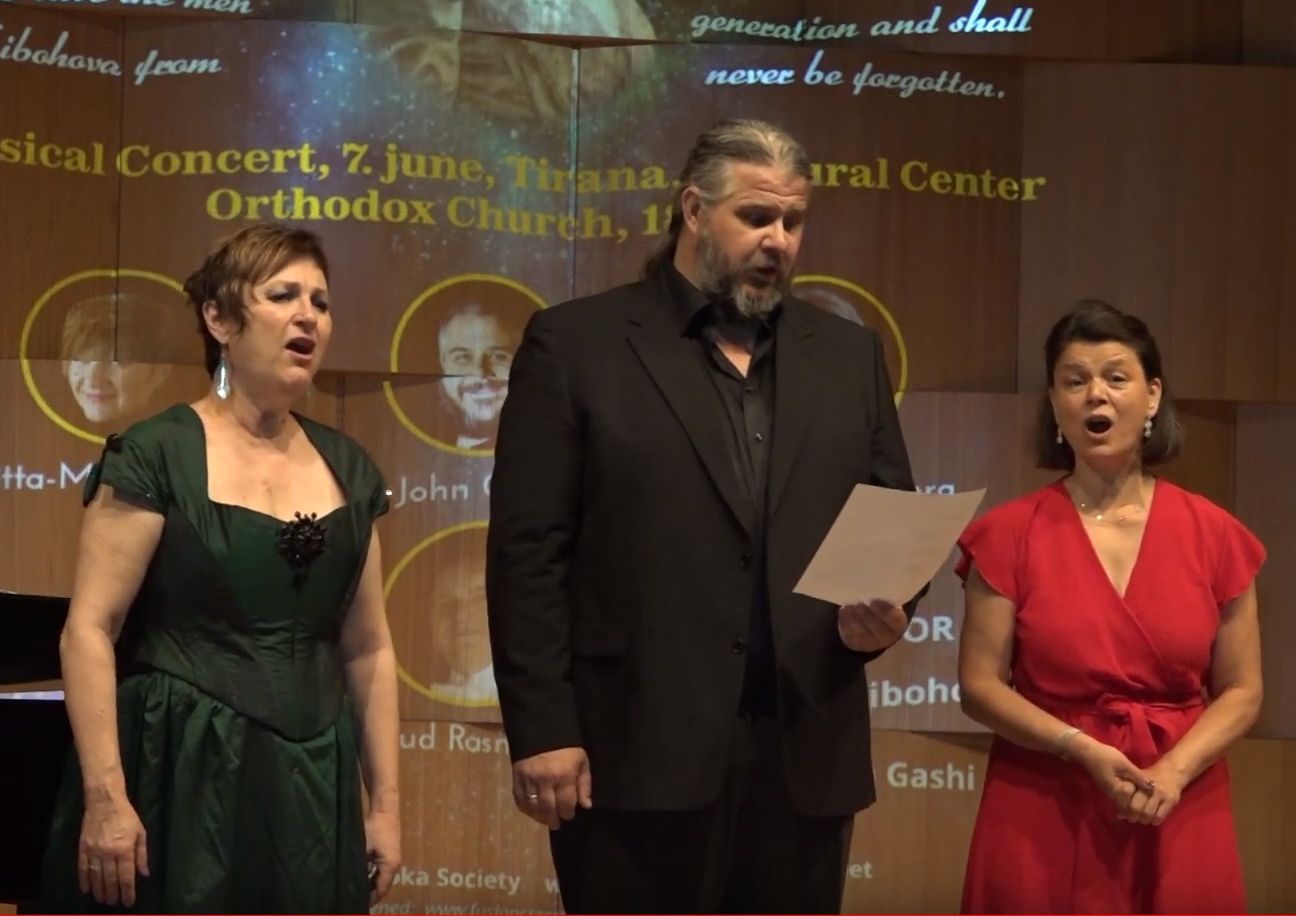
Masterclass Korca
A masterclass was held by the well-known Danish opera singer Gitta-Maria Sjöberg at the "Tefta Tashko" music school in Korca, a beautiful old city in southeast Albania. Korca was called “little Paris” and has an historic tradition for music and culture. The first Albanian bel canto singer, Jergjia Filce Truja and the first Albanian Pianist Lola Aleksi Gjoka began giving the first classical concerts in Korca and later, in other cities in Albania. The music school in Korca is named “Tefta Tashko” after the first Albanian opera singer Tefta Tashko, who, with her singing, had conquered the hearts of the Albanian people all around the country. It is an elementary school and high school. Playing an instrument, singing and painting are integrated parts of the curriculum. Gitta-Maria Sjöbjerg gave a two-day masterclass at the Tefta Tashko Music School. Five students took part in the masterclass. Gitta-Maria was astonished by these young talents. The students were excited to learn new aspects of singing from Gitta-Maria, and they absorbed all they could during the two days.
A concert was organized by the director of the Tefta Tashko Music School, in collaboration with the municipality of Korca at the Gallery of Art in Korca, for the students and the guest of honour Gitta-Maria Sjöbjerg. The news about Gitta-Maria’s masterclass and her visit created excitement in the city of Korca. Even the national TV made a documentary that was transmitted on the news about the masterclass and the concert dedicated to Lola Gjoka with participation of the well-known soprano Gitta-Maria Sjöberg, who fascinated everyone, not only for her masterclasses, but also her respect for the Albanian culture by singing an Albanian song during the concert. Ilir Zguri, the director of theTefta Tashko Music School, was very happy and honoured with Gitta-Maria Sjöbjerg’s work, and looks forward for further collaboration with the Lola Aleksi Gjoka Society for future masterclasses with Danish artists.
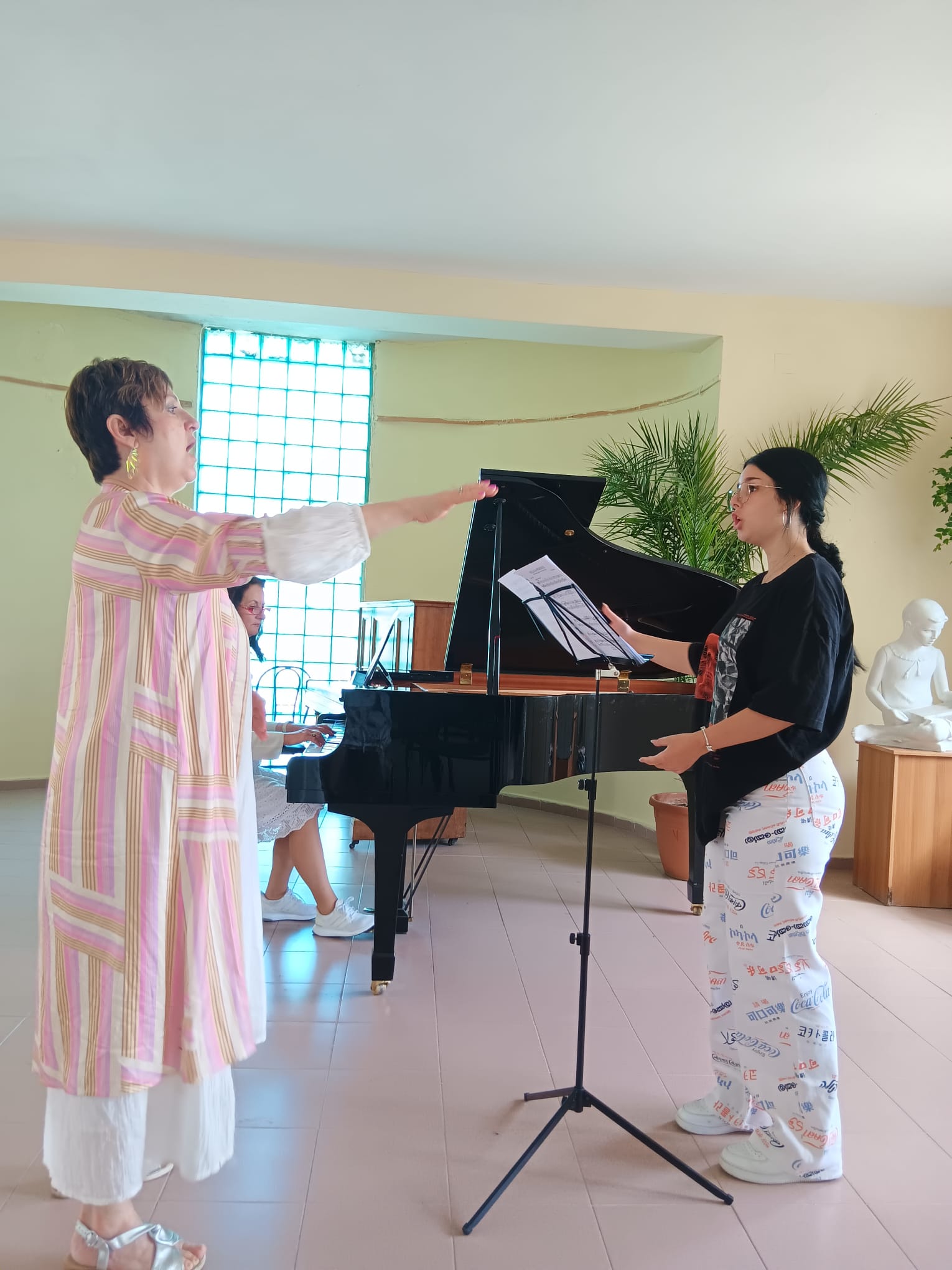
Support the work of our Lola Aleksi Gjoka Society, one year membership is 300,- dkr. or 45 euro.
